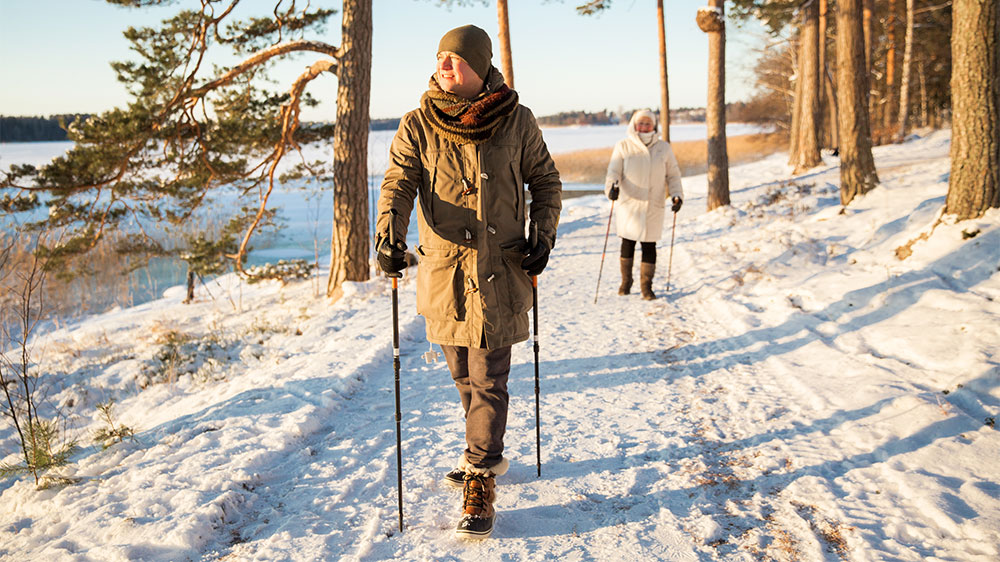
By MercyOne Waterloo Endocrinology Care
During wintery months, it is important to stay cautious of where you step in icy conditions. Slips and falls can occur all year round, but you can be more prone to injury in the winter. Keep these tips in mind this winter to keep yourself and your family upright and safe during the winter months.
Walk like a penguin in snow and ice
Safety measures are important all year, but especially when our environments are wet and icy. To prevent slips, trips and falls, stay stable. Walk like a penguin.
- Point your toes out
- Keep your knees relaxed
- Bend slightly
- Walk slowly
- Keep your arms and hands free for balance
“Make sure to go slow and to wear the right shoes,” says Dr. Sharma. “Avoid walking in heels outside and shoes that have little to no grip on their soles.”
If a fall does occur, try to fall either onto all fours or grab onto something to slow your fall.
“The best way to go about getting up from a fall is to ask for help to become stabilized,” says Dr. Sharma. “If they do end up getting a fracture and try to bear more weight on that limb without asking for help it can make it more difficult to treat.”
For people who are prone to fractures such as older people or people diagnosed with osteoporosis it is important to use a walker or cane to avoid falling.
“Women between 50-65 years of age are at a higher risk of wrist fractures,” says Dr. Sharma. “And that's because they tend to fall forward, putting all the weight onto their wrists.”
Strong bones prevent slips and falls
Healthy bones are a large factor in preventing falls and slips. Taking supplements such as calcium and Vitamin D will help keep your bones strong and less likely to break. Good sources of calcium you can add to your diet are:
- Dairy products
- Dark leafy vegetables
- Meats
- Beans and lentils
- Almonds
- Whey protein
- Edamame
- Tofu
It is common to be deficient in vitamin D during the winter months, especially in the Midwest. During your annual checkup with your provider, you can have your baseline levels checked to help understand the vitamins you need to strengthen your bones.
Aging and bone health
As you age, you may become more at risk for osteoporosis, a brittle and fragile bone condition from loss of tissue. Risk factors for osteoporosis include:
- Alcohol intake
- Calcium and vitamin D deficiency
- Cigarette smoking
- Diabetes
- Family history
- Women over the age of 50
If you are concerned that you may have osteoporosis, speak with your primary care provider.
Injury from slips, trips or falls can happen all year round. Other common causes of falling include: outdated eye prescription, certain medications that cause dizziness and diabetic peripheral neuropathy, which can cause numbness in the feet and muscle weakness. Speak with your provider to learn your fall risk factors to prevent future injury.
